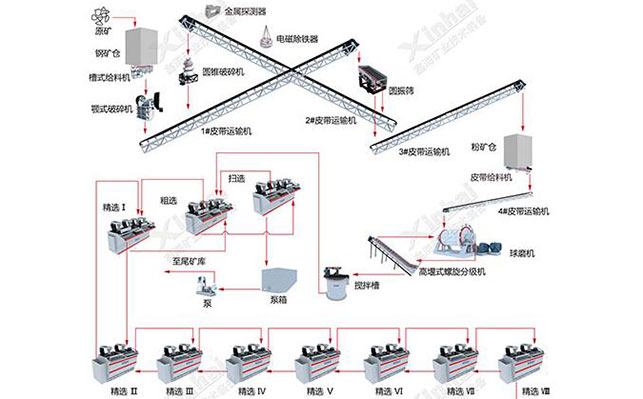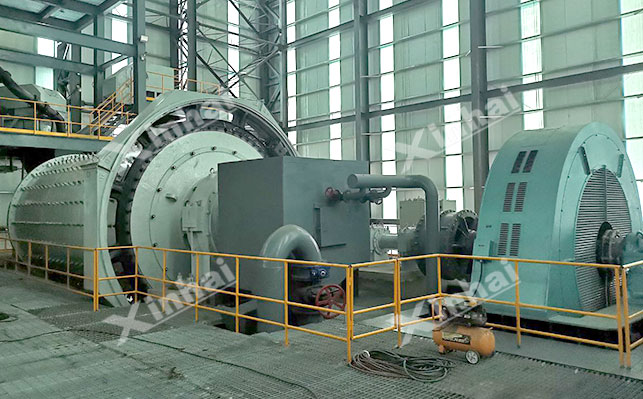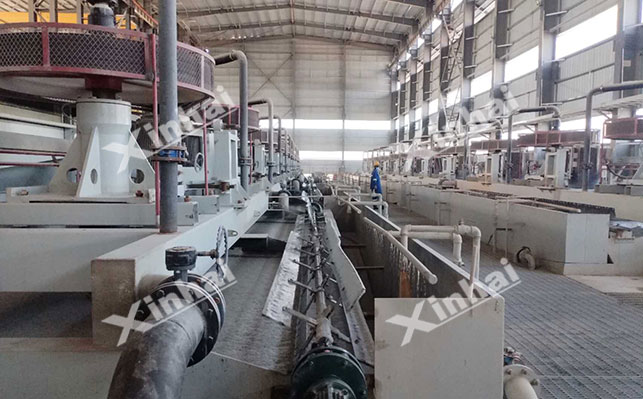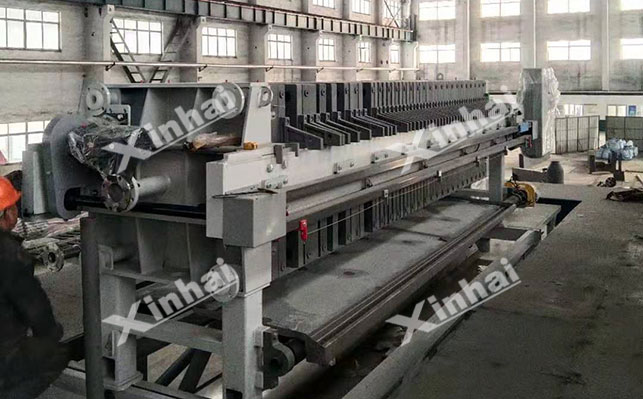
15311826613
Click to add WeChatThe chemical formula of fluorite is CaF2. It is an important non-metallic mineral that can be widely used in chemical industry, metallurgy, building materials and other fields. Fluorite has low hardness, high density, strong fluorescence and other characteristics. However, fluorite often coexists with minerals such as quartz and calcite, and the ore properties are relatively complex. In order to obtain high-grade fluorite concentrate, a reasonable and efficient beneficiation process is essential. The fluorite beneficiation process process usually includes crushing, grinding and classification, flotation separation, roughing, scavenging and concentrating, concentration and dehydration, and tailings treatment.

The early stage of ore dressing is to crush the ore to reduce the mineral particle size and increase the mineral exposure area, creating conditions for subsequent grinding and sorting operations. Crushing operations usually include three stages: coarse crushing, medium crushing and fine crushing. Among them, coarse crushing is the process of initially crushing the large pieces of material mined into smaller sizes. Commonly used coarse crushing equipment includes jaw crushers and gyratory crushers to complete the operation; crushing is the further processing of the coarsely crushed materials to reduce their particle size to a finer level. Cone crushers or impact crushers are commonly used; and fine crushing is the final refinement of the materials based on the first two stages to meet the requirements of particle size in specific application fields. Commonly used equipment is impact crusher and roller crusher.
Grinding is the further processing of the crushed ore to achieve a particle size suitable for sorting. Grinding operations usually use ball mill or rod mill. The grading operation is matched with the grinding operation. The grinding products are graded according to the particle size through the spiral classifier or hydrocyclone. The coarse particles return to the grinding circuit and the fine particles enter the sorting operation.

Flotation is the key step in fluorite ore dressing. Through the action of flotation reagents, fluorite minerals and gangue minerals are effectively separated. Flotation operations include the addition of adjusting agents, the addition of collectors, the generation of bubbles and other steps. Anionic collectors such as oleic acid and its derivatives are usually used for the flotation of fluorite.
In order to improve the grade and recovery rate of fluorite concentrate, flotation operations usually include three stages: roughing, scavenging and concentrating. Roughing is the preliminary sorting, scavenging is to further recover the valuable minerals in the tailings, and concentrating is the operation to improve the grade of the concentrate. According to the difference in the physical and chemical properties of the surface of fluorite and gangue minerals, the flotation of the minerals is changed by adding flotation agents to achieve the separation of fluorite and gangue. Commonly used flotation agents include collectors, inhibitors and frothers. Oleic acid, oxidized paraffin soap, etc. are often used as collectors for fluorite; water glass, sodium hexametaphosphate, etc. are used as inhibitors for gangue minerals.

The fluorite concentrate after sorting needs to be concentrated and dehydrated to meet the needs of subsequent processes or markets. Concentration operations usually use concentrators, and dehydration operations use filters or centrifuges.
Tailings are waste generated during the beneficiation process, and their treatment methods are crucial to environmental protection. Tailings treatment usually includes tailings concentration, dehydration and storage. The rational use of tailings, such as for building materials or filling materials, is also an important way to achieve comprehensive resource utilization.

The above is the basic process of fluorite ore dressing. In the actual ore dressing plant, due to the large number of fluorite ore types and the large number of other minerals contained, the principle process is similar, but the process plan cannot be copied. It is recommended to conduct ore dressing tests, and through experimental analysis, design the fluorite ore dressing process at the time to obtain an ideal return on investment.